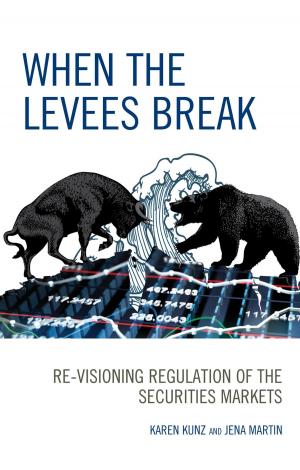Barbecue Economics: Be Your Neighborhood Expert on Demand, Supply, and the Free Market
Business & Finance, Economics| Author: | Dick Gillette | ISBN: | 9780988448117 |
| Publisher: | Dick Gillette | Publication: | October 26, 2012 |
| Imprint: | Smashwords Edition | Language: | English |
| Author: | Dick Gillette |
| ISBN: | 9780988448117 |
| Publisher: | Dick Gillette |
| Publication: | October 26, 2012 |
| Imprint: | Smashwords Edition |
| Language: | English |
This is a book about economics, but it is not an economics book. It is a businessman's perspective on the principles of economics and how they affect the potential for growth and prosperity in a free market environment. You will know just enough economics to make you the expert at the backyard barbecue.
We start with the underpinnings of economic science, the ideas of scarcity, marginal reasoning, incentives, and opportunity cost, highlighting Adam Smith's writings of the late 18th century in establishing these principles.
Following is an overview of microeconomics, how producers and consumers interact to establish the price and availability of goods and services. We show how lack of attention to these principles leads to inefficient public policies like rent and price controls and the minumum wage.
In macroeconomics we reveiw how Thomas Malthus's theory of economic growth evolved into the classical economic model. This model shows how an improved standard of living is possible only with a growing population or an increasingly productive work force, or both. We discuss the purpose of government intervention in the economy and review the three major avenues of intervention, tax and spending policies, monetary control, and regulation. The contributions of Frederic Bastiat, Milton Friedman, Arthur Laffer, Thomas Sargent, and others are laid out.
Next, we examine the rationale for foreign trade, followed by a discussion of U.S. trade with China.
Finally, we highlight the growth of cronyism between the government and special interests, and show how the efficiency of a free market is dampened in the process.
We use a few simple charts to amplify the text and include an Appendix to explain how to interpret them. Economics is a challenging field of study, but the basic principles are not hard to grasp. Our goal is to give you just enough exposure to help you engage comfortably in the debate.
This is a book about economics, but it is not an economics book. It is a businessman's perspective on the principles of economics and how they affect the potential for growth and prosperity in a free market environment. You will know just enough economics to make you the expert at the backyard barbecue.
We start with the underpinnings of economic science, the ideas of scarcity, marginal reasoning, incentives, and opportunity cost, highlighting Adam Smith's writings of the late 18th century in establishing these principles.
Following is an overview of microeconomics, how producers and consumers interact to establish the price and availability of goods and services. We show how lack of attention to these principles leads to inefficient public policies like rent and price controls and the minumum wage.
In macroeconomics we reveiw how Thomas Malthus's theory of economic growth evolved into the classical economic model. This model shows how an improved standard of living is possible only with a growing population or an increasingly productive work force, or both. We discuss the purpose of government intervention in the economy and review the three major avenues of intervention, tax and spending policies, monetary control, and regulation. The contributions of Frederic Bastiat, Milton Friedman, Arthur Laffer, Thomas Sargent, and others are laid out.
Next, we examine the rationale for foreign trade, followed by a discussion of U.S. trade with China.
Finally, we highlight the growth of cronyism between the government and special interests, and show how the efficiency of a free market is dampened in the process.
We use a few simple charts to amplify the text and include an Appendix to explain how to interpret them. Economics is a challenging field of study, but the basic principles are not hard to grasp. Our goal is to give you just enough exposure to help you engage comfortably in the debate.















